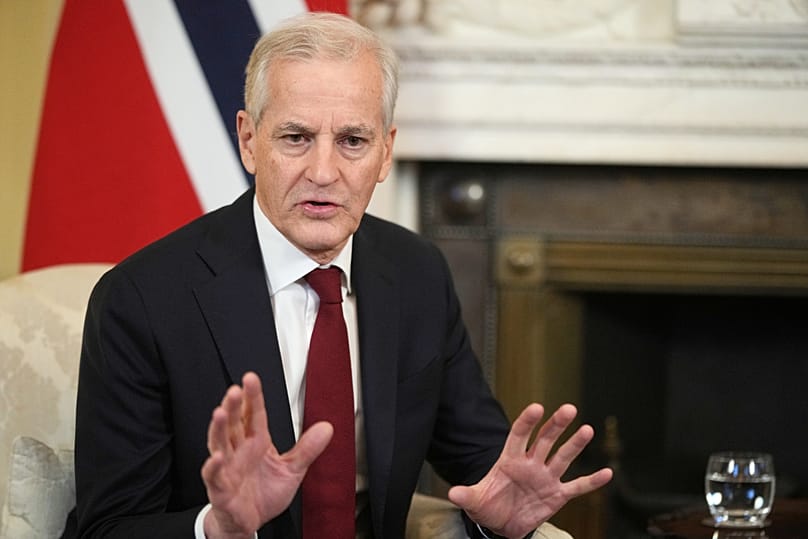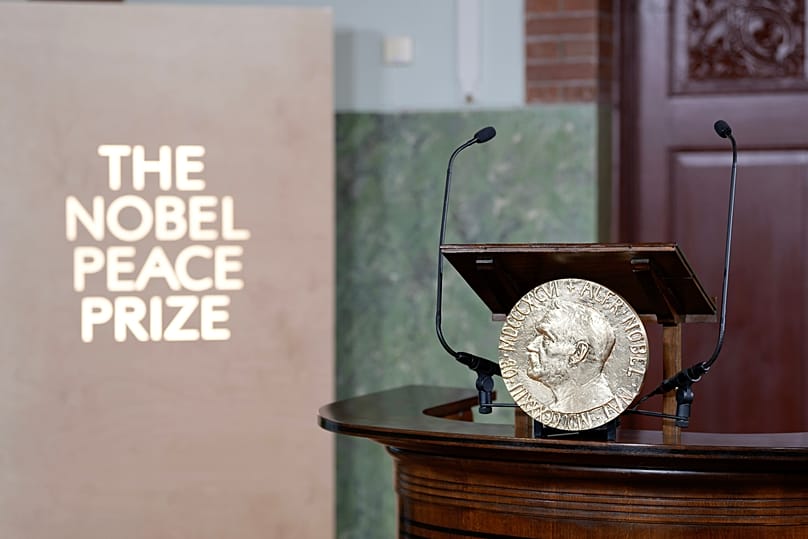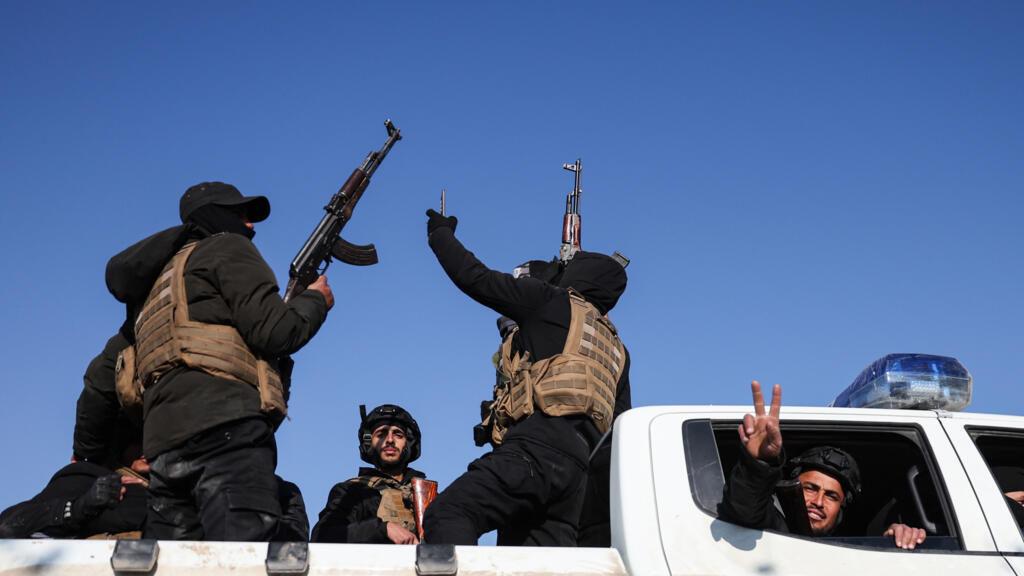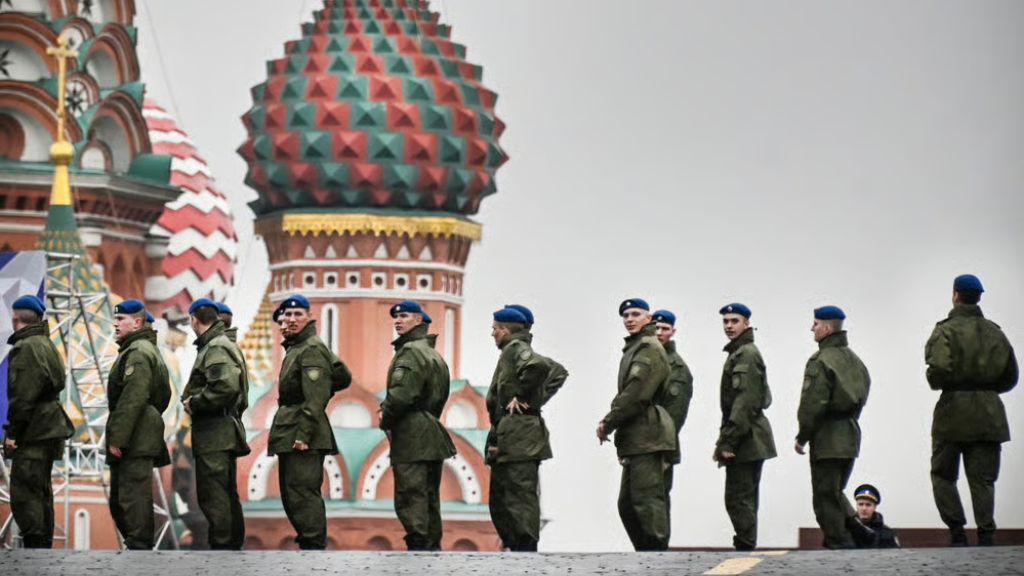Trump tells Norway's PM he has no obligation to 'think purely of peace' after Nobel snub
.png) |
| KOMMANDER IN CHIEF; BONESPURS |
Trump has boasted about ending eight wars, styling himself as "the president of peace" and therefore deserving of the Nobel honour but those claims have been exaggerated.
US President Donald Trump told Norway's prime minister he no longer needed to think "purely of peace" after failing to win the Nobel Peace Prize, in a message published on Monday.
"Considering your Country decided not to give me the Nobel Peace Prize for having stopped 8 Wars PLUS, I no longer feel an obligation to think purely of Peace," Trump said in a message to Norwegian Prime Minister Jonas Gahr Støre.
It is unclear why Trump decided to send a message to Støre as the peace prize is decided by the Norwegian Nobel Committee and not the government.
In a written comment, Støre underlined that the Nobel Peace Prize was not awarded by the Norwegian government.
"I have clearly explained, including to president Trump what is well known, the prize is awarded by an independent Nobel Committee," Store said.

Trump has long coveted the annual peace prize and last week Venezuela's opposition leader María Corina Machado gifted her Nobel Peace Prize medal to him at the White House.
Machado was awarded the 2025 Nobel Peace Prize for her leadership of Venezuela's opposition movement amid a crackdown by President Nicolás Maduro, most notably in the much-maligned 2023 presidential election.
Machado's gesture to Trump followed a series of developments in Venezuela after a blitz US military raid captured Maduro and his wife and brought them to New York to stand trial on drug trafficking charges two weeks ago.
During the visit, Machado gave Trump her Nobel medal "as a recognition for his unique commitment to our freedom," she told reporters outside the US Capitol.
Trump confirmed on social media that Machado had left the medal for him to keep and said it was an honour to meet her.

"She is a wonderful woman who has been through so much. María presented me with her Nobel Peace Prize for the work I have done," Trump said in his post. "Such a wonderful gesture of mutual respect. Thank you María."
Ahead of Machado's visit to Washington, the Norwegian Nobel Institute, organisers of the Nobel Prize, said in a statement that a Peace Prize cannot be withdrawn, transferred or shared once it has been announced.
The Nobel Foundation's statutes and Alfred Nobel's will — which dictate the merits awardees should have — state that the title of the winner belongs personally to the individual and cannot be legally shared or reassigned to another person.
The medal or the associated diploma can be physically given, sold or auctioned, but this does not confer the award's title on anyone else
Ending eight wars?
Trump has often boasted about ending eight wars, styling himself as "the president of peace" and therefore deserving of the Nobel honour but those claims have been exaggerated.
The latest conflict he claims to have ended was two years of fighting between Israel and Hamas in Gaza.
The other seven are Israel and Iran, Pakistan and India, Rwanda and the Democratic Republic of Congo, Thailand and Cambodia, Armenia and Azerbaijan, Egypt and Ethiopia and Serbia and Kosovo.
But some of those conflicts lasted just days and one, Egypt-Ethiopia, had no fighting to end but rather involved long-standing issues of water sharing from the Nile River.

Ethiopia formally inaugurated the Grand Ethiopian Renaissance Dam (GERD) last year. It sees the dam as a boon to its economy but Egypt opposed its construction, arguing that it would reduce the country's share of Nile River waters.
Trump recently told Fox News that one of the ongoing conflicts that has continued despite his claiming to have stopped it, a simmering border dispute between Thailand and Cambodia, should actually count more than once.
"I did put out eight wars, eight and a quarter, because, you know, Thailand and Cambodia started going at it again," he told Sean Hannity last week.
Considerations on the Morality of Donald Trump
In an interview with the New York Times, when asked if there were any checks on his powers on the world stage, Trump replied: “Yeah, there is one thing. My own morality. My own mind. It’s the only thing that can stop me.”
A voice jumps in to ask: “Not international law?”
“I don’t need international law,” said Trump. “I’m not looking to hurt people.”
Trump’s own morality.
Morality is a set of principles that distinguishes between right and wrong that guide one’s behavior accordingly.
This inquiry into the morality of Trump will leave aside exploration of Trump’s alleged sexual peccadilloes, sexual abuse, adulterous flings, grabbing pussies, except for his questionable relationship with a known sex offender.
Thou shall not kill
Trump identifies as non-denominational Christian; therefore, the ten commandments should apply to Trump. In this case, the prohibition against taking human life is applicable and particularly worth examining because it is generally considered a universal principle that is also encoded in international law.
The list of lives erased at Trump’s behest is long. The recent US attack launched against Venezuela took 100 lives. That was on the heels of several snuff videos of small boats that Trump alleges were narco traffickers.1 There were no interceptions, no presumption of innocence, just killing. As of 31 December 2025, CBC cited the number of crew members killed at 115.
On 22 June 2025, the US attacked three nuclear facilities in Iran. The number of casualties is unclear.
Clear is that the US sneak attack on Iran was an intrusion into the Iran-Israel war to aid the sneak-attacking Israel belligerent. Israel has been engaged in warring against its neighbors Lebanon, Syria, and was wreaking a genocide in Palestine, with devastating destruction in Gaza. This genocide has been abetted by Trump’s US (of course, with Democrats on side with Israel).
Sovereignty
The sneak attacks speak to the pusillanimity at the core of the Trump and Netanyahu governments.
As well, the US attacks demonstrate a disregard for US adherence to international law as per the UN Charter to which the US is a signatory, thus it is legally binding under the US Constitution. Article 2(1) of the UN Charter recognizes the sovereign equality of states, regardless of size or power. Further, Article 2(7) prohibits outside intervention in domestic matters, such as the protests recently in Iran where Trump threatened intervention, even though protests were also ongoing in the US for the killing of a critic of the Trump administration by ICE operatives.
By launching attacks abroad without Congressional approval, Trump is criticized for failing to abide by the US Constitution which he pledged to uphold in his oath of office.
Lying
Lying is considered an abnegation of morality. Ethics Officer Tim C. Mazur reasoned,
Lies are morally wrong, then, for two reasons. First, lying corrupts the most important quality of my being human: my ability to make free, rational choices. Each lie I tell contradicts the part of me that gives me moral worth. Second, my lies rob others of their freedom to choose rationally.
Trump has a history of documented lying including recently.
The big lies are insidious. For example, the Trump administration kidnapped Venezuela’s president Nicolás Maduro and his wife, Cilia Flores, on the accusation of running a cocaine narco-trafficking operation to the US. The Trump administration has focused on Tren de Aragua (TDA), a cartel that took root in prisons, and is allegedly linked to Maduro. US attorney general Pam Bondi called TDA “a highly structured terrorist organization” and “a foreign arm of the Venezuelan government.”
El País downplayed Bondi’s assertion, citing the opinion of experts that “Tren de Aragua in no way poses a national security issue for Washington, as Donald Trump claims.” Moreover, on 7 April 2025, the US National Intelligence Council issued a memo that stated,
While Venezuela’s permissive environment enables TDA to operate, the Maduro regime probably does not have a policy of cooperating with TDA and is not directing TDA movement to and operations in the United States.
More than two hundred people have died based on, at best, erroneous assessment of intelligence, or worse, outright disinformation.
After the attack on Venezuela, Trump said: “We’re going to take back the oil that frankly we should’ve taken back a long time ago.” And “we’re going to have our very large United States oil companies, the biggest anywhere in the world, go in, spend billions of dollars, fix the badly broken infrastructure, the oil infrastructure, and start making money for the country.”
Not mentioned concerning the theft of Venezuelan oil is why the oil infrastructure is “badly broken.”
However, this is readily understandable when one considers the dire effect of economic sanctions that the US has imposed on Venezuela. One research report estimated that the sanctions had caused more than 40,000 estimated deaths in Venezuela from 2017 to 2018. A 2025 Lancet paper laid bare the perniciousness of economic sanctions for which 564,258 deaths worldwide per year were attributed for the period from 2012 to 2021.
Trump is a known braggart, and oftentimes his lies take the form of boasting. To wit his claim that he’d end the warring between Russia and Ukraine in 24 hours: “They’re dying, Russians and Ukrainians. I want them to stop dying. And I’ll have that done — I’ll have that done in 24 hours.”
It wasn’t just a one-off boast, presumably to attract votes. CNN notes that there were 53 times Trump said he’d end the Ukraine war within 24 hours or before taking office.
Even more unseemly is that the Russia-Ukraine conflict is only partially that. It is a NATO-Ukraine proxy war against Russia. So while Trump is bragging that he’ll bring a quick end to the Ukraine-Russia war, he is deeply involved in it — attested to by US secretary-of-state Marco Rubio: “And frankly, it’s a proxy war between nuclear powers – the United States, helping Ukraine, and Russia.”
Trump’s duplicity in the proxy war came to the forefront when a drone attack was launched from Ukraine targeting a residence used by president Vladimir Putin in the Novgorod region, this while Putin was in telephone discussions with Donald Trump (about which Trump lied) on ending the war in Ukraine. A downed Ukrainian drone provided decoded navigation data information, according to Russia, that proves it contained the precise coordinates of the intended target — Putin’s residence — including data on the flight path of the drone.
Former US Marine intelligence officer Scott Ritter was unambiguous as to the meaning:
American digital “fingerprints” were all over this guidance component, something the Russians knew when their head of military intelligence handed one of these intact components over to the US military attaches in Moscow.
Russia knows the truth.
And the truth is that the United States under Donald Trump still seeks the strategic defeat of Russia.
Rudenness
Are manners not necessarily attached to morality, facilitating social interaction and guiding us to live a virtuous life?2
Social etiquette befuddles Trump who addresses many people in a decidedly rude manner. In fact, he dehumanizes and humiliates people. The examples are myriad: he referred to DPRK president Kim Jong-un as “little rocket man”; he called Canada a 51st state, Canadians “mean and nasty,” and has driven his closest trading partner, Canada, to renewed relations with China, a nation Trump calls a “threat to the world”; he considered his former appointee as US ambassador to the UN, Nikki Haley, to be a “birdbrain”; former president Joe Biden is demeaned as either “Sleepy Joe,” Crooked Joe,” or even “sleepy son of a bi**h”; of his director of National Intelligence Tulsi Gabbard relaying the intelligence community’s assessment of Iran not pursuing nuclear weapons, Trump said, “I don’t care what she said” he called one female reporter “piggy”; and the list of people derided by Trump is much, much longer — indicating a penchant for crudely dealing with people he disagrees with.
What are Tariffs and Who Pays
Trump not only uses sanctions to inflict harm on other nations to achieve political aims, he also is imposing tariffs on other nations, friend and foe alike, as a cornerstone of his economic agenda and in support of his imperialist ambitions.
Trump envisions the US as a tariff nation. He frames a tariff as a tax on another country. He hopes to create a surfeit of cash to pay off the staggering US debt (now approximately $38.45 trillion) and create manufacturing jobs in the US.
But the question is who will pay the tariff. Trump maintains it is the exporting nation.
The Institute on Taxation and Economic Policy calls Trump’s claim erroneous and that American consumers will bear much of the cost through higher prices.
Indeed, Trump’s claim that tariffs are borne by exporters is widely held to be false.3
Noted Columbia University economist Jeffrey Sachs predicts the Trump tariff policy will fail.
What is in the Offing?
There is other sordid information that might have strong negative implications for Trump and his morality that is is still seeping out.
The release of the Epstein files may well speak to the morality of Donald Trump. The release of the files is staunchly opposed by Trump, but dribs and drabs have emerged. Epstein is notorious for having been charged with sex trafficking of minors and conspiracy to commit sex trafficking of minors. Children and adolescents who become entangled in sex trafficking sometimes come from backgrounds with traumatic experiences; young age and a history of trauma can be a recipe for exploitation of vulnerable youth.
Epstein operated frequent flights with high profile guests to his private island, Little Saint James, in the US Virgin Islands. There is much documented and video evidence of alleged sex trafficking of minors to the island and Epstein abodes elsewhere. Trump’s relationship with Epstein and his world puts him in an unwanted spotlight.
Trump posted on Truth Social in January 2024, “I was never on Epstein’s Plane, or at his ‘stupid’ Island.” However, documents released by Trump’s own Justice Department –including flight logs and emails — indicate that Trump had been a passenger on Epstein’s private jet “far more often” than realized.
As of 16 January 2026, Will Gottsegen wrote, “Less than 1 percent of [the Epstein files] have been released. A CNN poll reveals that two-thirds of Americans believe the Trump government is holding back certain information.
How do Americans feel about the morality that guides Trump, and do they even care? Time will tell; the US November midterm elections are in the offing.
ENDNOTES:



